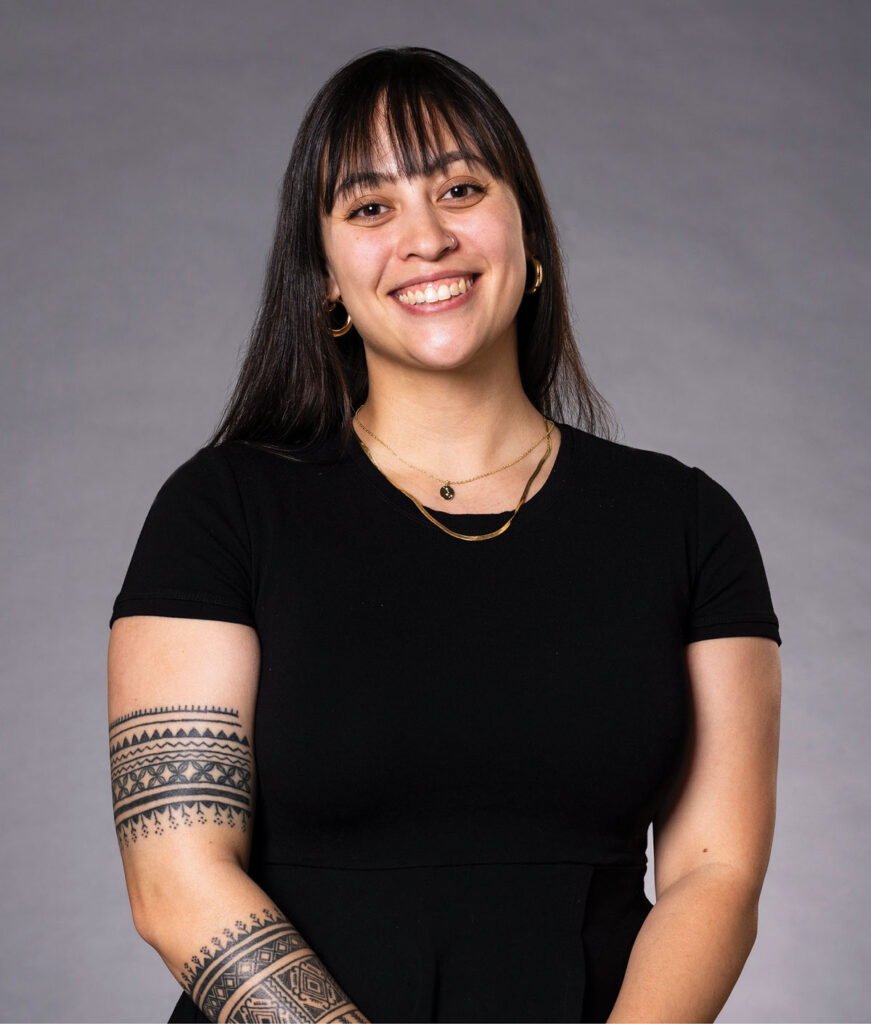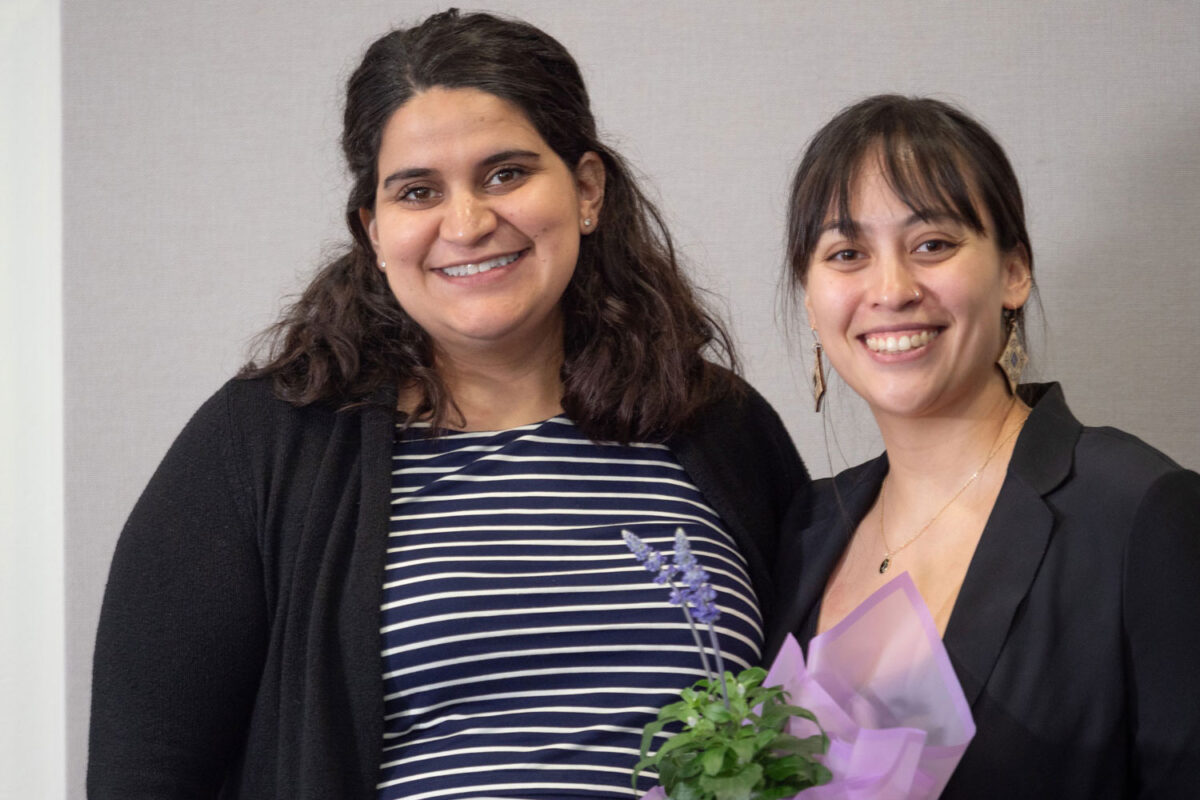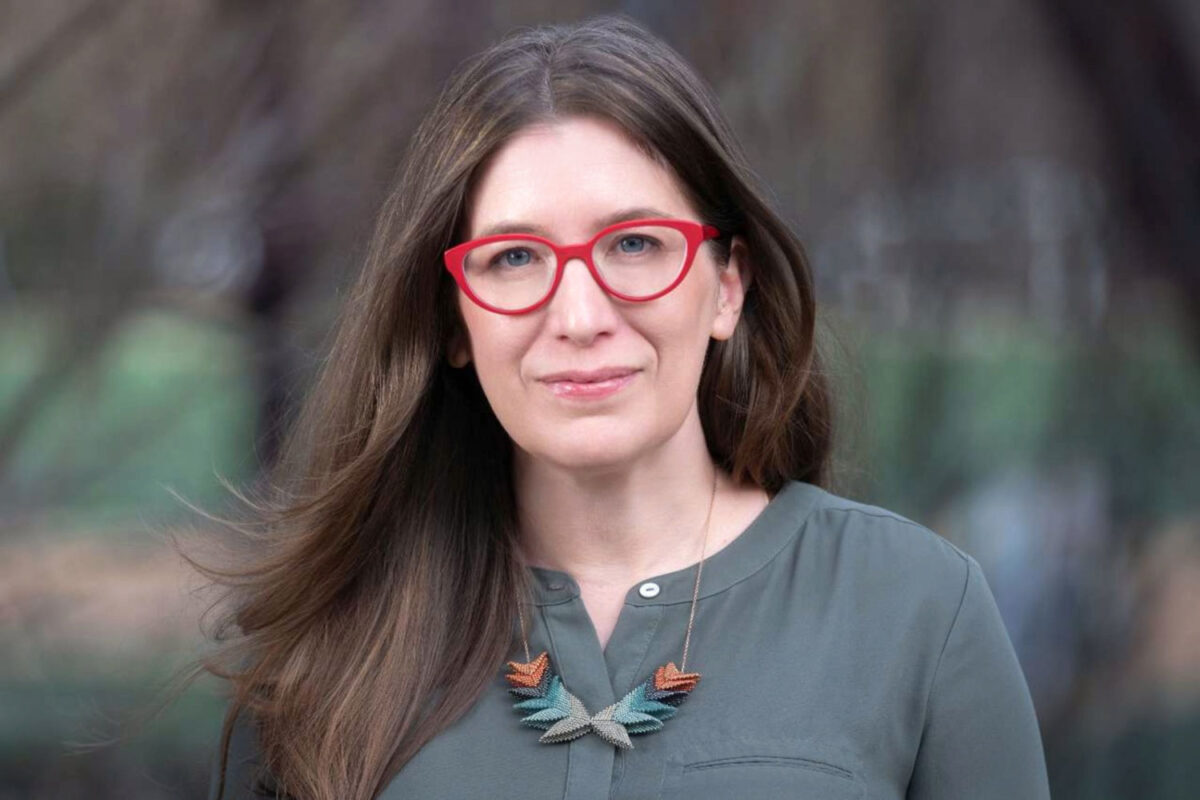Starting college can be scary, no matter a person’s background or circumstance. It is significantly harder, however, for first-generation students and harder still for first-gen students who are also helping keep their families afloat financially.
About the time Antonia Dorn started her first year of college at the University of Washington, her mom had been laid off, which put the family in a difficult situation. And they were already struggling with medical bills left over from her father’s passing and a house that needed work they simply couldn’t afford.
“I felt a lot of stress about doing well in my classes, but I was even more worried about making enough money to get myself and my family back into our home,” Dorn said. “It took a huge toll on my mental health. It was really, really hard.”
To simply graduate from college would have been a tremendous accomplishment for Dorn given all this, but not only did she graduate (Sociology ’18), she is now pursuing her Master of Education at UW Bothell.
In recognition of all that she has accomplished, she has been named one of the 2024 Husky 100 honorees.
Life-changing advice
Every year, the UW recognizes 100 undergraduate and graduate students from the Bothell, Seattle and Tacoma campuses who have made the most of their time at the UW — inside and outside the classroom. These Husky 100 students actively connect the dots between what they learn in their studies with what they want to do to make a difference on campus, in their communities and for the world. Dorn is one of six honorees from UW Bothell.

“There are many students who have won fancy awards or received prominent recognitions, but there are not many students like Antonia who have been relentless in pursuing stability for her family and equity for all,” said Joslin Boroughs, director of advising initiatives and partnerships at the UW in Seattle. “I have never met a student with so many work and family responsibilities who also has the ability to step into leadership roles with grace, reliability and thoughtfulness.”
The pressures of trying to manage her responsibilities as a student, employee and provider for her family eventually led Dorn to seek help from an academic adviser.
This decision, and the conversations they had, changed the trajectory of her life. “I told my adviser that I felt like I had three separate worlds — my work, my school and my family,” Dorn said. “My adviser helped me to combine my work and school worlds by encouraging me to apply for a job in the advising office. To my delight, I was hired.”
Decade-long impacts
Dorn started as a front desk student associate, helping connect students with various people and programs across campus. While the job may sound straightforward, it initiated profound realizations for Dorn.
“Being surrounded by 40 advisers at any time, I was often encouraged to explore the things that drive me and what I care about in the world,” she said. “They gave me the push I needed to start taking sociology courses, and that’s when I went full speed into really caring about what I was doing and feeling like my education was finally becoming a part of me, rather than something I just had to complete for the next step.”
The encouragement she received from her academic adviser also led Dorn to take the Tagalog series, an introduction to the Filipino language and culture. “This was the first time I ever interacted with the language as my mom was never taught her parent’s language, Ilokano, another Filipino dialect, and instead was forced by society to assimilate,” she said. “My mom also didn’t know many Filipino recipes. As a family, we felt really disconnected from our own heritage.
“Having that knowledge from the Tagalog series and being able to share it with my mom was really special,” Dorn said. “She feels a lot of pride that I feel so proud of our culture because she wasn’t raised to be able to do so. And she’s grateful because she didn’t get to learn a lot of these things or spend time learning our food in our language. Now, I get to help teach her that.
A return to her roots
Dorn’s undergraduate experience at the UW solidified two things — one, that she is passionate about uplifting the voices of marginalized communities, and two, that the advising office can change a student’s life.
After graduating in 2018, Dorn wanted to give back to the place that “gave [her] so much.” She applied for a position as the operations manager and was quickly hired, with other staff members claiming that as much as they impacted her, she also impacted them.
“What makes me most proud is the leadership and commitment she has shown to equity and community building in our office,” Boroughs said. “Antonia pushes our office to think through how our policies impact those who experience marginalization in our society. She is always looking for more opportunities to increase her knowledge around diversity and equity and is not afraid to speak up when she sees something inequitable.”
After working as an operations manager for five years, Dorn decided to return to the UW in 2023 as a student — but this time on the Bothell campus. “I had gotten my family back into our house and finally felt like I had housing safety and psychological safety,” she said. “I had taken time after graduating to find new hobbies and experience life — something I never got to do growing up because I was always on a mission to keep everyone safe and help our family heal from loss.
“I think I finally felt able to go to graduate school,” she said, “because I finally felt like I was more complete as a human and had taken some time just to live and figure out what I wanted to do long term.”
“This is an opportunity I wouldn’t have had if not for my graduate program, which has given me the skills and training to be an effective, equitable leader.”
Antonia Dorn, graduate student, School of Educational Studies
A world of peace
Dorn chose the Critical Educational Change and Leadership program in UW Bothell’s School of Educational Studies because of its focus on social justice. “I didn’t see that in any other program,” she said, “and that is a huge driver for me.”
Having lived a life of hardship, Dorn said she is motivated to create a world of peace and recently accepted a new job at the UW as manager of inclusive excellence in the College of Engineering in Seattle, working as a liaison for anti-racist practice.
“This is an opportunity I wouldn’t have had if not for my graduate program, which has given me the skills and training to be an effective, equitable leader,” she said. “The program has made me more sure that working in education is where I belong. I am doing work that dismantles white supremacist, patriarchal, sexist, violent, systems one interaction at a time.
“This work will never be ‘complete,’ at least in my lifetime,” she said, “but that is all the more reason to start now, work ceaselessly and consistently lead with love.”




